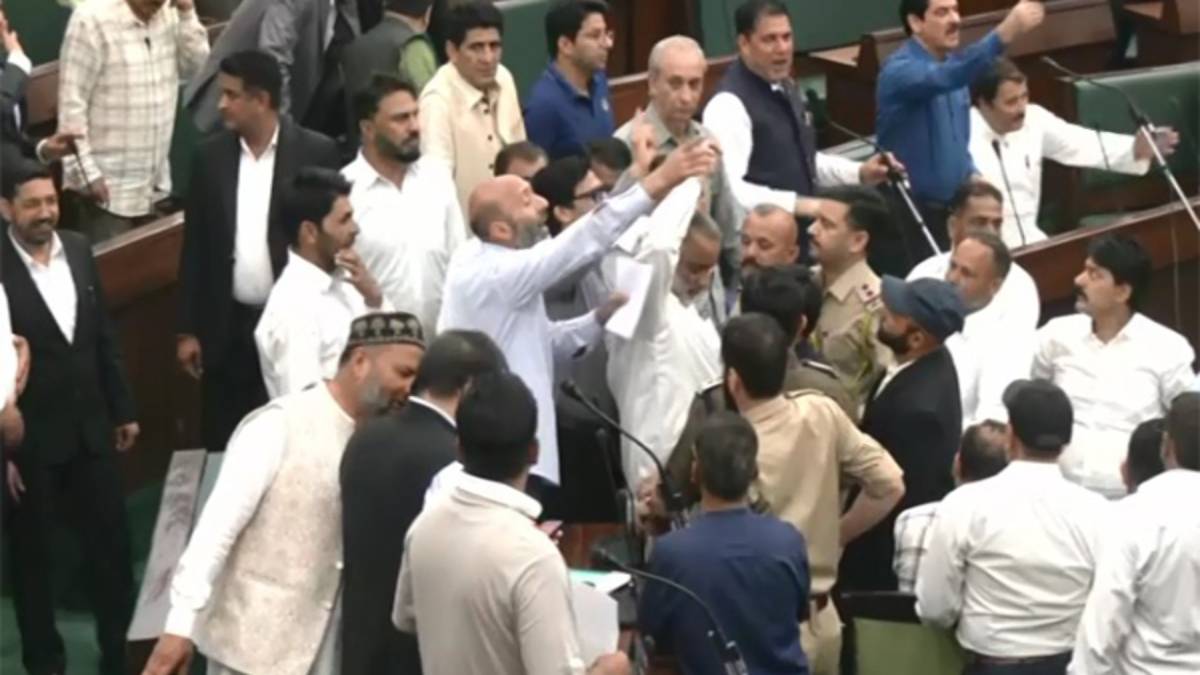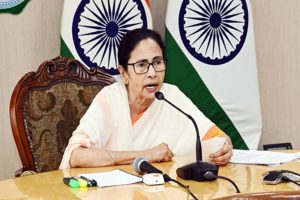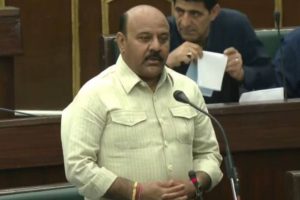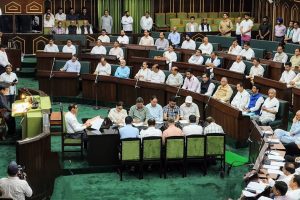High drama unfolded in the Jammu and Kashmir Assembly on Tuesday as Opposition parties, led by the People’s Democratic Party (PDP) and Awami Ittehad Party (AIP), demanded a discussion on the recently passed Waqf Act. The demand sparked chaos in the House, leading to its adjournment for 30 minutes.
PDP MLA Waheed Para was marshalled out of the Assembly after vocally protesting the Speaker’s decision to reject the adjournment motion under Rule 58, which bars discussion on matters sub judice. Several petitions challenging the Waqf Act are currently pending before the Supreme Court.
Around 20 MLAs had submitted an adjournment motion seeking a debate on the Waqf Act, which they argue infringes on Muslim religious rights and sentiments. Speaking outside the Assembly, Waheed Para described the decision as “unfortunate,” emphasizing the religious sensitivities involved.
“It is unfortunate that in a Muslim-majority region like Jammu and Kashmir, we are denied a discussion on an issue that affects our cemeteries, our masjids, our dargahs—our very identity,” Para said. He criticized the silence of other lawmakers and urged them to support the resolution against the Waqf Act. “If 60 MLAs in this House do not stand with us on this, history will judge us harshly.”
Targeting J&K Chief Minister Omar Abdullah, Para condemned the warm reception given to Union Minority Affairs Minister Kiren Rijiju—who introduced the Waqf Bill—during his visit to Srinagar. “The same Chief Minister who gave a red carpet welcome to Rijiju is now silent on a law that Muslims across the country are opposing,” he said.
Para also cautioned against viewing mosques and dargahs as mere real estate, stating, “These are not properties—they are sacred symbols of our identity. Turning them into political battlegrounds will only deepen communal rifts.”
AIP MLA Khursheed Ahmad Sheikh also raised slogans inside the House, shouting, “Mahzab ka mamla hai (This is a religious issue),” as Speaker Abdul Rahim Rather struggled to maintain order.
The Waqf (Amendment) Bill remains a contentious issue, drawing criticism from various political and religious groups. With protests escalating, the issue is likely to remain a flashpoint in the region’s political discourse.





